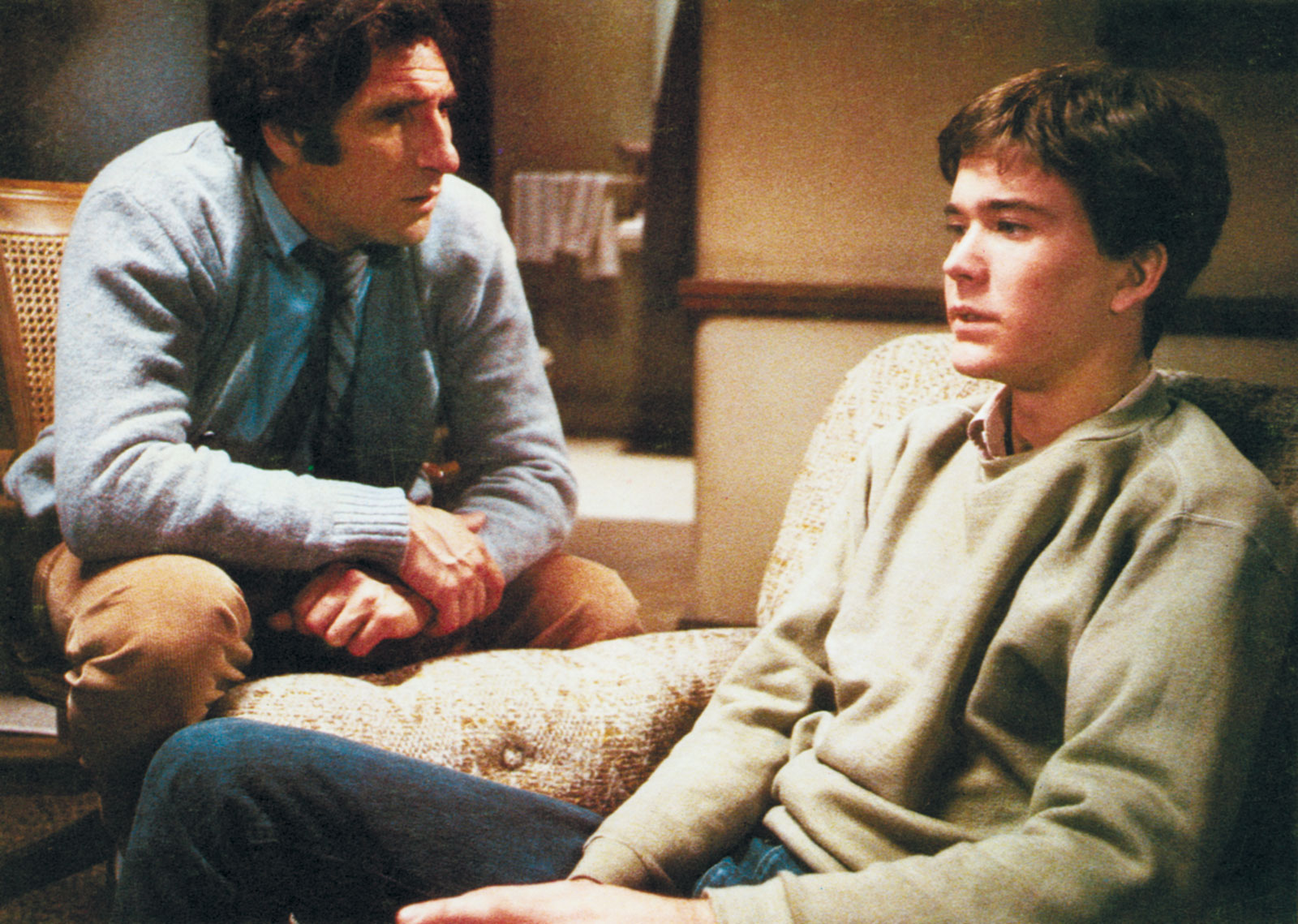
Directed by: Robert Redford
Starring: Donald Sutherland, Mary Tyler Moore, Judd Hirsch, Timothy Hutton, Elizabeth McGovern
Here is a powerful, perceptive film with characters that evolve and reveal themselves before our very eyes. How you see them in the beginning is not what you see at the end. What happens between those two points is why Ordinary People is so special. It is an unblinking portrait of a family torn apart by a crisis it wasn't equipped to handle. The Jarretts, Calvin (Sutherland), Beth (Moore), and Conrad (Hutton) are affluent and happy on the surface. Under the surface, however, two horrible situations occur which alter the dynamics of the family. First, the oldest son Buck dies in a boating accident. The surviving son from the accident, Conrad, feels unbearable guilt and is hospitalized after attempting suicide. Ordinary People focuses on what happens after Conrad returns home.
Conrad begins seeing a therapist, Dr. Burger (Hirsch), who is a compassionate straight-shooter. Conrad is anxious, jumpy, and searching for a truth that eludes him. He feels, correctly, that his mother is angry with him over Buck's death. He believes she can not accept him because he brought unrest to her tidy life. Exchanges between the two are friendly, but cold and distant. Beth is well-liked by others and keeps a spotless house, but does anyone truly know her? Calvin believes he does, but begins to see another side to her as time passes. Calvin spends much of his time playing peacemaker between Conrad and Beth. He wants life to be as it was, which is no longer possible. He loves Conrad in his own awkward way and wishes he could help him. Certainly, Conrad has some breakthroughs as his life returns to normal, but must learn to forgive himself before he can truly move on.
All of this sounds like early 80's TV Movie Of The Week melodrama, but Ordinary People strives to be deeper. Things are not altogether resolved at the end, but the family learns to understand and accept its limitations while starting the healing process. Perhaps it is better if they don't stay together as a family. Redford, (who won a Best Director Oscar for this film), shows a steady hand and a real feel for the material. He says he wanted this to be his first directing job because his own family danced around issues the same as the Jarretts do. Because of this, he has instinctive sympathy for the Jarretts. Conrad and Calvin aren't "the good guys" and Beth is not "evil". They are allowed the privilege of self-discovery. "We would've been all right if there hadn't been any mess," Calvin confesses to Beth near the film's conclusion. This entire scene is fascinating because it allows us to witness how the truth about Beth shakes him to his core.
Timothy Hutton won the Best Supporting Actor Oscar for his role, even though he has the most screen time and the most dialogue. Hutton was 19 when the film was made, yet shows a fearlessness in portraying such a sad, wounded, tortured soul. Conrad wants to get better. He is tired to the bone with feeling guilty and unloved, but facing what he perceives is the truth may be worse for him. His final scene with Dr. Burger is full of anger, tears, confession, and understanding. Hirsch calmly handles Conrad here. "I'm your friend. Count on it," he says with refreshing straightforwardness that defines him.
I've seen Ordinary People many times and each time it is an emotional powerhouse. Because it understands its characters so fully, it becomes a visceral experience without ever being depressing or manipulative. The final declaration of "I Love You" between Conrad and Calvin is a long overdue expression of acceptance and affection. It packs a wallop, like scene after scene in Ordinary People does.
No comments:
Post a Comment